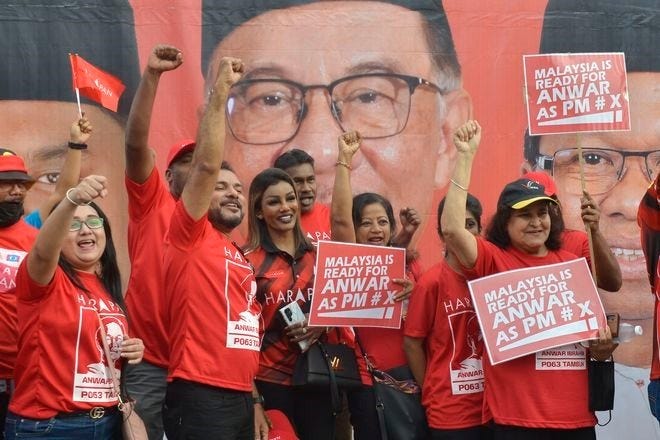Malaysia’s Upcoming National Polls Suddenly Look Competitive
Inflation, joblessness, corruption, bad schools make once-invincible Barisan look vulnerable
Although there are no reliable polls, there are increasing signs of a seismic shift on the part of voters in Malaysia’s upcoming 15th general election, to be held on November 19, with the possibility that no single coalition will hold a majority, presaging a scramble to offer splinter parties perks to form alliances big enough to rule.
The election has b…
Keep reading with a 7-day free trial
Subscribe to Asia Sentinel to keep reading this post and get 7 days of free access to the full post archives.


